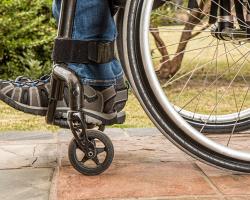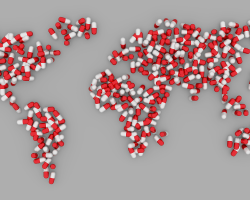As many as 4.5 million Poles may be afflicted by the chronic kidney disease (CKD). 95 percent of this group die prematurely due to heart and vessel complications caused by the disease, which was diagnosed too late. Annual general urine tests and establishment of the creatinine level in the blood can assist in the diagnosis and prevention of premature death.
The most common causes of CKD include diabetes (the so-called diabetic nephropathy), arterial hypertension, as well as glomerular nephritis or polycystic kidney disease. In children, the disease may be caused by inborn or acquired defects of the urinary system.
The survey conducted under the programme for the Early Diagnosis of Kidney Diseases in Poland (PolNef) back in 2004 showed that CKD may occur in about 18 percent of adult Poles.
A sneaky disease
Chronic kidney disease occurs when damage to kidney functions or structure is preserved for three months or over. Unfortunately, the disease may not demonstrate characteristic symptoms for a very long time – even ten years and more – until the onset of an advanced, fifth stadium, i.e. extreme failure which requires kidney replacement therapy (dialysis therapy or, preferably, kidney transplantation).
Even if the symptoms occur during the early stages of CKD, they are few and not very prominent: fatigue, mild anaemia, etc. In some cases, the first symptom will be elevated blood pressure diagnosed during periodical examinations or a random doctor’s appointment.
Symptoms such as dermatological transformations, vomiting, convulsions or limb numbness appear very late, when the kidney failure has reached a serious stage.
Regular examinations are a must
Because a developing CKD shows no apparent symptoms, experts from the Polish Nephrology Society recommend that everyone – even people who feel healthy – once a year undergo simple and inexpensive tests that will help to early diagnose the disease. These include general urine tests and creatinine concentration in the blood serum. Preferably, the results should be evaluated by a physician.
A symptom of kidney damage may be the presence of protein or blood in urine or a creatinine level exceeding the norm. Subjected to a special formula, the creatinine concentration serves to calculate the so-called glomerular filtration rate (GFR) which is a more precise indicator of renal health. Correct GFR is above 90 millilitres per minute. There are five stages of CKD established based on the GFR value.
The annual general urine test and establishment of the creatinine level is particularly recommended for people with high CKD risk, i.e. those whose relatives (parents, siblings) suffer from hypertension, diabetes or kidney disease.
Individuals with such diseases must take the tests, and the periods between successive tests may be reduced, subject to medical recommendations.
People who have a history of CKD in the family are also recommended to have their kidneys ultrasound-scanned.
Therapy
The therapy of the diagnosed disease is based on the treatment of its causes and the stop of its progress. The methods include normalising arterial tension, avoiding medicines with a toxic effect on the kidneys, reducing protein consumption, treating anaemia and lipid disorders and quitting smoking.
Treatment of the complications caused by the disease is also important. In extreme kidney failures, patients should be prepared for kidney replacement therapy.









Comments (0)